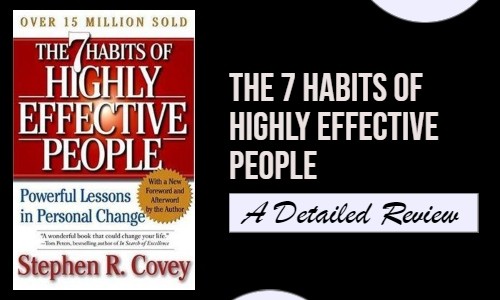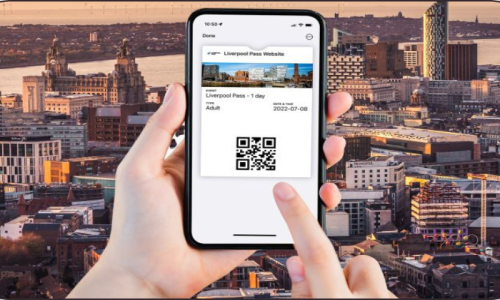"The 7 Habits of Highly Effective People" by Stephen Covey is a timeless and highly influential self-help book that was first published in 1989. The book has sold over 30 million copies worldwide and has been translated into 50 languages. The book is based on Covey's decades of experience as a management consultant and is structured around seven core principles or habits that can help individuals lead a successful and fulfilling life.
Central Idea
The central idea of the book is that individuals can achieve lasting success and happiness by adopting a set of core principles or habits that are based on timeless and universal principles. Covey argues that the key to success is not just mastering the techniques and tools of success but also developing a strong character and personal values that guide our actions and decisions.
Summary
The book is divided into three parts. In the first part, Covey introduces the concept of "paradigms," or mental models, and argues that our thinking and perception of the world shapes our behavior and outcomes. He introduces the first three habits: being proactive, beginning with the end in mind, and putting first things first. These habits focus on taking responsibility for our lives, setting goals, and prioritizing our time and energy.
In the second part of the book, Covey introduces the next three habits: thinking win-win, seeking first to understand, then to be understood, and synergizing. These habits focus on developing effective communication and collaboration skills, building strong relationships, and creating a culture of trust and cooperation.
In the final part of the book, Covey discusses the importance of self-renewal and introduces the seventh habit, which is to sharpen the saw or continually improve oneself through physical, mental, social, and spiritual growth.
Covey uses a variety of examples, anecdotes, and case studies to support his arguments and illustrate the practical application of the habits. He also draws on a wide range of philosophical, psychological, and spiritual traditions to provide a comprehensive and holistic framework for personal and professional development.
Strengths & Weaknesses
One of the book's strengths is its emphasis on personal responsibility and self-awareness. Covey argues that individuals have the power to choose their responses to any situation, and that by developing a proactive mindset and focusing on principles, they can create meaningful and fulfilling lives. Another strength is the book's practical and actionable advice, which is grounded in real-world examples and case studies.
However, the book has also been criticized for being overly simplistic and lacking in nuance. Some have argued that Covey's framework is too focused on individual achievement and ignores the broader societal and structural factors that can influence success and happiness. Additionally, some have criticized the book's language and tone as being overly preachy and moralistic.
Despite its flaws, "The 7 Habits of Highly Effective People" remains a classic and influential self-help book that has inspired millions of readers to adopt a more proactive and principle-centered approach to life. Its emphasis on personal responsibility, effective communication, and continual self-improvement make it relevant and valuable to anyone seeking to achieve their goals and lead a more fulfilling life.
Important Points:
Some important points from the book include:
- The power of paradigms or mental models in shaping our behavior and outcomes.
- The importance of adopting a proactive mindset and focusing on principles rather than just techniques and tools.
- The value of effective communication, collaboration, and building strong relationships.
- The importance of continual self-improvement and renewal.
Key Lessons:
Some key lessons from the book include:
- Take responsibility for your life and focus on what you can control.
- Set goals and prioritize your time and energy based on your values and principles.
- Seek to understand others before seeking to be understood.
- Continually improve yourself through physical, mental, social, and spiritual growth.
How to Apply these Seven Habits in Your Life:
There are many ways to apply the seven habits in your life, depending on your goals, challenges, and situations. Here are some general suggestions based on the book and other sources:
Habit 1: Be Proactive. To be proactive, you need to take responsibility for your own life and choices. You need to focus on what you can control and influence rather than what you can’t. You need to act based on your values and goals rather than your moods or circumstances. You need to use positive and empowering language rather than negative and limiting language. You need to seek opportunities and solutions rather than problems and complaints.
Habit 2: Begin with the End in Mind. To begin with the end in mind, you need to have a clear vision of what you want to achieve in life and align your actions with it. You need to define your mission and purpose and live by them. You need to set long-term and short-term goals and prioritize them. You need to create a personal statement that summarizes your vision, mission, values, roles, and goals. You need to review and revise your statement regularly and use it as a guide for your decisions and actions.
Habit 3: Put First Things First. To put first things first, you need to manage your time and resources effectively according to your priorities. You need to do the most important things first rather than the urgent or easy things. You need to be disciplined and organized in planning and executing your tasks. You need to use a tool such as a planner, calendar, or app that helps you schedule your activities based on your roles and goals. You need to balance your time between production (doing) and production capability (learning, growing, renewing).
Habit 4: Think Win-Win. To think win-win, you need to seek mutual benefit in all your interactions with others. You need to have a mindset of abundance rather than scarcity and cooperation rather than competition. You need to respect others’ needs and interests as well as your own. You need to build trust and credibility with others by being honest, fair, respectful, reliable, etc. You need to negotiate effectively with others by identifying common goals, exploring options, agreeing on criteria, etc.
Habit 5: Seek First to Understand Then to Be Understood. To seek first to understand then to be understood, you need to communicate effectively with others by listening empathically before speaking persuasively. You need to understand others’ perspectives and feelings before expressing your own. You need to seek to clarify rather than to judge or argue. You need to use active listening skills such as paraphrasing, reflecting, summarizing, questioning, etc. You need to use assertive communication skills such as stating your needs, opinions, feelings, etc., without being aggressive or passive.
Habit 6: Synergize. To synergize, you need to create value through teamwork and collaboration by leveraging diversity and creativity. You need to combine the strengths of different people and ideas to produce something better than what any one person or group could do alone. You need to seek third alternatives rather than compromising or settling for less. You need to appreciate and celebrate differences rather than fearing or avoiding them. You need to foster a culture of openness, trust, respect, innovation and contribution. You need to use tools such as brainstorming, feedback, consensus, etc. to generate and implement ideas.
Habit 7: Sharpen the Saw. To sharpen the saw, you need to renew yourself physically, mentally, emotionally, and spiritually by engaging in activities that enhance your health, learning, relationships, and hobbies. You need to take care of yourself in all dimensions of life and seek balance and harmony. You need to practice the habits regularly and consistently and review your progress and challenges. You need to use tools such as meditation, reading, exercise, journaling, etc. to sharpen your saw.
To apply these habits in your life, you can start by:
1. Reading the book carefully and thoroughly and taking notes of the main points and insights.
2. Doing the exercises and activities suggested in the book and reflecting on your experiences and outcomes.
3. Creating a personal statement that summarizes your vision, mission, values, roles, and goals and reviewing it daily.
4. Using a planner, calendar, or app that helps you schedule your activities based on your roles and goals and reviewing it weekly.
5. Seeking feedback from others who know you well and are supportive of your growth and improvement.
6. Joining a group or community of people who are also applying the habits and sharing your challenges and successes with them.
7. Seeking a coach or mentor who can guide you and hold you accountable for applying the habits in your life.
Book Structure & Writing Style
The book's writing style is straightforward and accessible, with clear and concise language that is easy to follow. Covey uses a variety of examples and anecdotes to illustrate his points, which makes the book engaging and relatable.
The book is structured in a logical and easy-to-follow way, with each habit building upon the previous one. This structure makes it easy for readers to apply the concepts in their own lives and track their progress.
Conclusion
"The 7 Habits of Highly Effective People" has had a significant impact on its readers and the wider world. It has inspired countless individuals to adopt a more proactive and principle-centered approach to life, and has been widely used in business and leadership training programs. The book's influence can be seen in the numerous spin-off books, seminars, and products that have been developed based on its principles.
Overall, "The 7 Habits of Highly Effective People" is a valuable and influential book that offers practical advice and a comprehensive framework for personal and professional development. It is recommended for anyone seeking to improve their effectiveness, achieve their goals, and lead a more fulfilling life.
























